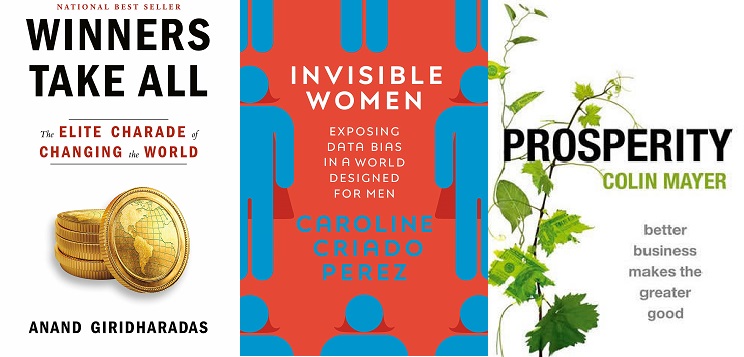With the academic year coming to an end and summer approaching, the Marshall Institute team share some recommendations of what to read, watch, and listen to during the summer break.
Leslie Labruto, Marshall Impact Accelerator Director
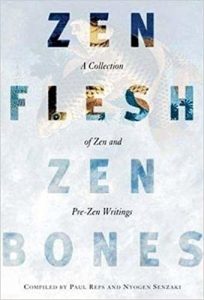 Nowadays, we hear a lot about the importance of mindfulness, meditation, and well-being. Zen Flesh, Zen Bones brings us back to the core of what Zen Buddhism is all about via short and funny fables, poems, and anecdotes. This old classic from 1957 is the type of read that picks me up when I’m in a slump and always seems to have a tale that strikes the right chord with me. My favorite? “Nan-in, a Japanese master during the Meiji era received a university professor who came to inquire about Zen. Nan-in served tea. He poured his visitor’s cup full, and then kept on pouring. The professor watched the overflow until he no longer could restrain himself. ‘It is overfull. No more will go in!’ ‘Like this cup,’ Nan-in said. ‘You are full of your own opinions and speculations. How can I show you Zen unless you first empty your cup?’”
Nowadays, we hear a lot about the importance of mindfulness, meditation, and well-being. Zen Flesh, Zen Bones brings us back to the core of what Zen Buddhism is all about via short and funny fables, poems, and anecdotes. This old classic from 1957 is the type of read that picks me up when I’m in a slump and always seems to have a tale that strikes the right chord with me. My favorite? “Nan-in, a Japanese master during the Meiji era received a university professor who came to inquire about Zen. Nan-in served tea. He poured his visitor’s cup full, and then kept on pouring. The professor watched the overflow until he no longer could restrain himself. ‘It is overfull. No more will go in!’ ‘Like this cup,’ Nan-in said. ‘You are full of your own opinions and speculations. How can I show you Zen unless you first empty your cup?’”
Keri Rowsell, Marshall Impact Accelerator Manager
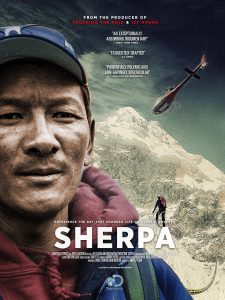 Documentary Sherpa was initially meant to tell the story of Phurba Tashi attempting a then record-breaking 22nd ascent of Mount Everest in 2014, but shifted focus after an avalanche during filming killed 16 local guides. The documentary ended up shining a light on Western exploitation of, and the dangers routinely faced by, sherpas in their work enabling foreign climbers to fulfil their dream of reaching the top of the world’s highest mountain. In The Fate of Food, Amanda Little provides a great introduction to the increasingly urgent questions about how we can sustain a global population estimated to reach 9.8 billion by 2050. The most interesting message for me was the proposal of a ‘third way’ to farm – neither relying on solely traditional methods, nor on solely modern technology, but combining the best elements of the two to create multiple viable, complementary, methods that are beneficial to human nutritional health and survival, while also being mindful of the impacts on our planet.
Documentary Sherpa was initially meant to tell the story of Phurba Tashi attempting a then record-breaking 22nd ascent of Mount Everest in 2014, but shifted focus after an avalanche during filming killed 16 local guides. The documentary ended up shining a light on Western exploitation of, and the dangers routinely faced by, sherpas in their work enabling foreign climbers to fulfil their dream of reaching the top of the world’s highest mountain. In The Fate of Food, Amanda Little provides a great introduction to the increasingly urgent questions about how we can sustain a global population estimated to reach 9.8 billion by 2050. The most interesting message for me was the proposal of a ‘third way’ to farm – neither relying on solely traditional methods, nor on solely modern technology, but combining the best elements of the two to create multiple viable, complementary, methods that are beneficial to human nutritional health and survival, while also being mindful of the impacts on our planet.
Alexander Wright, Programme Delivery Manager
 I have recently been thinking a lot about diaspora, belonging, and what it means to be “from” a certain place, whether that be where you grew up, moved to or where your ancestors moved from. I have been looking for a novel that explored these themes so was really pleased to be recommended We are all Birds of Uganda by Hafsa Zayyan. Switching between two time periods within the same family, crossing national and cultural boundaries, this novel looks at a family’s journey from India to Uganda, from Leicester to London exploring the complex relationships we build with where we are from and where we feel is home. I have written a longer review on Goodreads if it would be of interest!
I have recently been thinking a lot about diaspora, belonging, and what it means to be “from” a certain place, whether that be where you grew up, moved to or where your ancestors moved from. I have been looking for a novel that explored these themes so was really pleased to be recommended We are all Birds of Uganda by Hafsa Zayyan. Switching between two time periods within the same family, crossing national and cultural boundaries, this novel looks at a family’s journey from India to Uganda, from Leicester to London exploring the complex relationships we build with where we are from and where we feel is home. I have written a longer review on Goodreads if it would be of interest!
Jonah Rudlin, Research Asisstant
This year I got very immersed in Leonie Ross’ novel Popis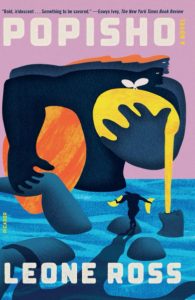 ho, a magical realist story set in a fictional world paralleling a Caribbean island nation under pressure from a changing climate and an invisible yet extractive outside world. Whilst an allegory for the impact of economic and climate imbalances, the story remains richly focussed on the lives and stories of the culture at hand. Most recently, however, I had a lot of fun watching 14 Peaks: Nothing is Impossible. There’s been a lot of insane climbing documentaries recently, and this one somehow manages to take it a step further still: Nepalese climber Nirmal Purja, championing the Sherpa community, sets out to climb fourteen of the tallest mountains in the world including Everest within 7 months (whilst the previous record is 7 years), and somehow finds time to save a few lives along the way.
ho, a magical realist story set in a fictional world paralleling a Caribbean island nation under pressure from a changing climate and an invisible yet extractive outside world. Whilst an allegory for the impact of economic and climate imbalances, the story remains richly focussed on the lives and stories of the culture at hand. Most recently, however, I had a lot of fun watching 14 Peaks: Nothing is Impossible. There’s been a lot of insane climbing documentaries recently, and this one somehow manages to take it a step further still: Nepalese climber Nirmal Purja, championing the Sherpa community, sets out to climb fourteen of the tallest mountains in the world including Everest within 7 months (whilst the previous record is 7 years), and somehow finds time to save a few lives along the way.
Carl Moldestad, Marshall Impact Accelerator Administrator
 A book I am currently reading, which has got me hooked straight away, is The Man Who Loved Dogs by Cuban writer Leonardo Padura. It’s a dense historical account of the assassination of Leon Trotsky and offers a fascinating story about a man whose provincialized life in exile also relates to other noteworthy historical timelines. A different book, which I greatly enjoyed, is Talking to Strangers by Malcolm Gladwell, a truly interesting, emotional, and engaging study of miscommunication, interactions, and assumptions people make when dealing with those that they don’t know. As for TV shows, I recently watched WeCrashed, a well-acted show about the turmoil of WeWork and the cooky couple that is Adam and Rebekah Neumann. I also loved the recent TV-series adaptation of Watchmen and its futuristic storyline on racial justice in the US.
A book I am currently reading, which has got me hooked straight away, is The Man Who Loved Dogs by Cuban writer Leonardo Padura. It’s a dense historical account of the assassination of Leon Trotsky and offers a fascinating story about a man whose provincialized life in exile also relates to other noteworthy historical timelines. A different book, which I greatly enjoyed, is Talking to Strangers by Malcolm Gladwell, a truly interesting, emotional, and engaging study of miscommunication, interactions, and assumptions people make when dealing with those that they don’t know. As for TV shows, I recently watched WeCrashed, a well-acted show about the turmoil of WeWork and the cooky couple that is Adam and Rebekah Neumann. I also loved the recent TV-series adaptation of Watchmen and its futuristic storyline on racial justice in the US.
Jonathan Roberts, Teaching Director
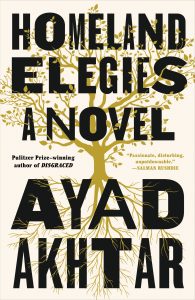 To my summer readings I have added Homeland Elegies by Ayad Akhtar, a powerful part biographical / part fictionalised account that explores identity and belonging in the US and beyond. It hits home. I would also recommend reading Reimagining Capitalism in a World on Fire by Rebecca Henderson. Can capitalism be reimagined to align with social and environmental outcomes? Rebecca Henderson argues eloquently, using insightful examples, that this reimagination is plausible; I’m still not sure. I have also heard good things about the BBC’s new drama series, Sherwood, which explores the miners’ strike in the 1980s and its consequences – a pivotal and polarising moment in British society and industrial policy which still resonates today.
To my summer readings I have added Homeland Elegies by Ayad Akhtar, a powerful part biographical / part fictionalised account that explores identity and belonging in the US and beyond. It hits home. I would also recommend reading Reimagining Capitalism in a World on Fire by Rebecca Henderson. Can capitalism be reimagined to align with social and environmental outcomes? Rebecca Henderson argues eloquently, using insightful examples, that this reimagination is plausible; I’m still not sure. I have also heard good things about the BBC’s new drama series, Sherwood, which explores the miners’ strike in the 1980s and its consequences – a pivotal and polarising moment in British society and industrial policy which still resonates today.
Jack Winterton, Research Assistant
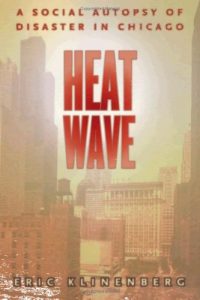 Eric Klinenberg in Heat Wave: A Social Autopsy of Disaster in Chicago, uncovers the hidden social, not environmental, contours of the deadly heatwave that hit Chicago in 1995. The first part of the book threads together a meticulous analysis of the accumulation of state, social, and economic breakdowns across the city and their devastating consequences during two extraordinary weeks in July 1995. The second part of the book explores how these factors were almost entirely missed at the time by the press and policymakers. The book’s key strength is its ability to present a rigorous sociological analysis and, at the same time, a clear and compelling account of the tragedy and injustice of the disaster.
Eric Klinenberg in Heat Wave: A Social Autopsy of Disaster in Chicago, uncovers the hidden social, not environmental, contours of the deadly heatwave that hit Chicago in 1995. The first part of the book threads together a meticulous analysis of the accumulation of state, social, and economic breakdowns across the city and their devastating consequences during two extraordinary weeks in July 1995. The second part of the book explores how these factors were almost entirely missed at the time by the press and policymakers. The book’s key strength is its ability to present a rigorous sociological analysis and, at the same time, a clear and compelling account of the tragedy and injustice of the disaster.
Sir Julian Le Grand, Professor
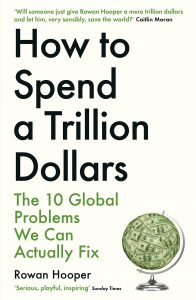
To the list of my summer readings I have added How Civil Wars Start: and how to stop them by Barbara F Walter and How to Spend a Trillion Dollars: the ten global problems we can actually fix by Roman Hooper. And for slightly lighter reading I would recommend Slow Horses. by Mick Herron
Stephan Chambers, Institute Director
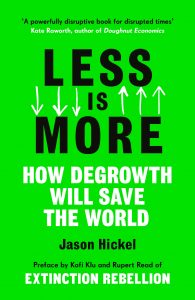 After a recent Institute team lunch, I added Tim Jackson’s Prosperity Without Growth and Jason Hikel’s Less Is More to my summer reading list, joining our colleague Mike Savage’s new book, The Return of Inequality and Stanley Cavell’s Here and There. I’ve also been asking around about ‘the best podcast you’ve ever heard’. S-Town gets lots of votes so I’ll try that this summer. And when all that’s done I’ll spend time with Ali Smith, Jenny Offill, and Elizabeth Strout.
After a recent Institute team lunch, I added Tim Jackson’s Prosperity Without Growth and Jason Hikel’s Less Is More to my summer reading list, joining our colleague Mike Savage’s new book, The Return of Inequality and Stanley Cavell’s Here and There. I’ve also been asking around about ‘the best podcast you’ve ever heard’. S-Town gets lots of votes so I’ll try that this summer. And when all that’s done I’ll spend time with Ali Smith, Jenny Offill, and Elizabeth Strout.
Julia Ziemer, Institute Manager
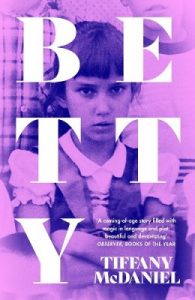 Two books I have enjoyed recently are propelled by very different female voices. I discovered Anne Tyler’s Breathing Lessons whose catalogue has recently been republished. The inauspicious premise is a day-in-the-life of a middle-aged American housewife but like Woolf’s Mrs Dalloway, the narrative weaves between past and present, exploring themes of identity, family, loss and longing. I was equally moved by a very different narrative voice in Tiffany McDaniel’s Betty a coming-of-age tale, inspired by the life of the author’s mother, who navigates racism and family trauma in 1960’s Ohio, drawing strength from the storytelling traditions of her Cherokee father.
Two books I have enjoyed recently are propelled by very different female voices. I discovered Anne Tyler’s Breathing Lessons whose catalogue has recently been republished. The inauspicious premise is a day-in-the-life of a middle-aged American housewife but like Woolf’s Mrs Dalloway, the narrative weaves between past and present, exploring themes of identity, family, loss and longing. I was equally moved by a very different narrative voice in Tiffany McDaniel’s Betty a coming-of-age tale, inspired by the life of the author’s mother, who navigates racism and family trauma in 1960’s Ohio, drawing strength from the storytelling traditions of her Cherokee father.
Let us know what you think about our suggestions! And if you have any recommendations you think should be on the list, please leave them in the comment section below.




